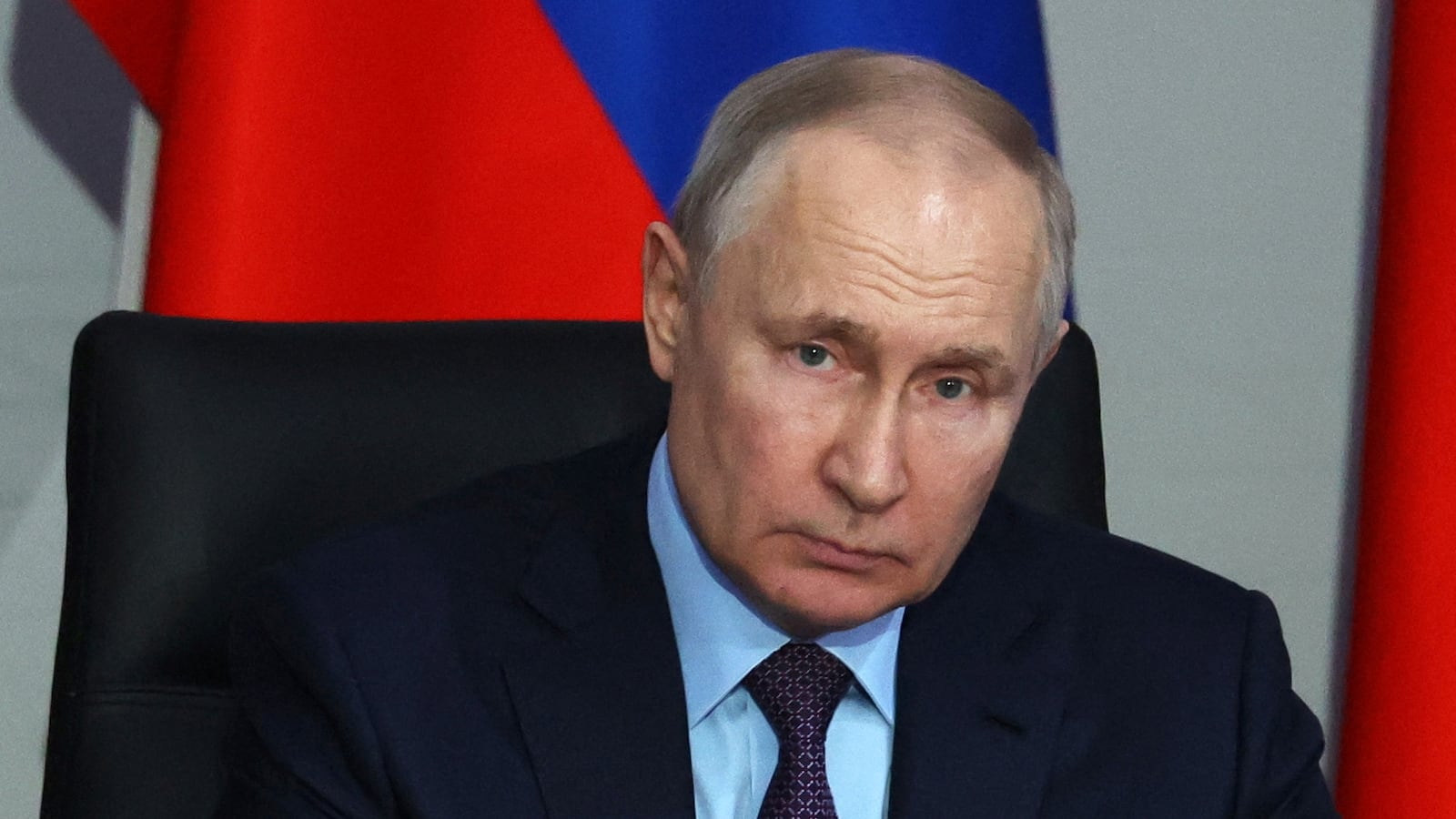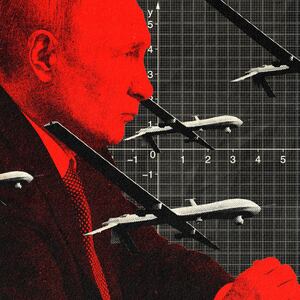Russian President Vladimir Putin has pared back his goals in the war in Ukraine to focus only on maintaining territory he has already seized, according to a new U.S. intelligence community assessment.
Moscow has also decided to focus on its goal of preventing Ukraine from joining the North Atlantic Treaty Organization (NATO), Avril Haines, the Director of National Intelligence (DNI), told lawmakers Thursday.
“We assess that Putin probably has scaled back his immediate ambitions to consolidate control of the occupied territory in eastern and southern Ukraine and ensuring that Ukraine will never become a NATO ally,” Haines said.
“He may be willing to claim at least a temporary victory based on roughly the territory he has occupied,” Haines added.
It’s a stark analysis from the U.S. intelligence community that comes over one year into a war that has left Russian forces with hundreds of thousands of casualties and without significant territorial gains. Russian armed forces have failed to seize significant swaths of territory in the last several months in Ukraine, despite reported plans to seize more territory in Eastern Ukraine by March.
In April alone, Russian forces gained less territory than during any of the three previous months while they transition to defensive rather than offensive operations, according to Haines.
It’s not the first time that Putin has appeared to adjust his goals in Ukraine. When Russian troops tried and failed to seize Kyiv, the Ukrainian capital, due to logistics and resupply issues last year, Russian forces shifted focus to eastern Ukraine. But the U.S. government’s assessment at the time was that Putin still had designs to take over the entirety of the country, as The Daily Beast reported.
And yet, a negotiated settlement doesn’t appear to be an inevitability, Haines indicated.
“Even as Putin may be scaling back his near-term ambitions, the prospect for Russian concessions to advance negotiations this year will be low unless domestic political vulnerabilities alter his thinking,” she said.
U.S. officials have been noting in recent days that military battles alone might not bring about an end to the conflict, hinting at a settlement in some form, even as Ukrainian officials insist that they hope to push Russians out of all territory Moscow has seized since 2014.
Ukrainian armed forces are preparing to launch a counteroffensive sometime in the spring or summer to push Russia out of territory in eastern Ukraine, according to U.S. intelligence.
“I do think that the probability of either side achieving their political objectives through the sole use of military means…is going to be very difficult, very challenging,” Gen. Mark Milley, the chairman of the Joint Chiefs of Staff, told Foreign Affairs recently.
Secretary of State Tony Blinken encouraged negotiations for peace between Russia and Ukraine this week.
“We’re open to any country engaging in responsible efforts to try to advance peace, and that begins with a couple of things. It begins, first of all, with the recognition… that what’s fundamentally at stake is the territorial integrity and sovereignty and independence of Ukraine, so any peace agreement has to have that as its foundation,” Blinken told Fox News in an interview.
Putin’s calculus on Ukraine may have changed in the near term. But he still likely harbors the belief that if he can wait for support for Ukraine to dry up in Western countries, he may be able to reignite Russia’s offensive effort at some point in the future, according to the U.S. intelligence community’s assessment.
“We continue to assess that Putin most likely calculates that time works in his favor and that prolonging the war may be his best remaining pathway to eventually securing Russia’s strategic interests in Ukraine,” Haines said Thursday.
To that end, the Kremlin’s influence arm has been amplifying speculation about providing military aid to Ukraine, which has been key to helping Ukraine fend off a total Russian takeover, U.S. intelligence memos obtained previously by The Daily Beast show.
The U.S. intelligence community now assesses that Putin might be interested in negotiating some kind of pause, if only to allow his military time to rebuild.
“Putin’s willingness to consider a negotiated pause may be based on his assessment that a pause would provide a respite for Russian forces as they could try to use that time to regain strength before resuming offensive operations at some point in the future, while buying time for what he hopes would be an erosion of western support for Ukraine,” Haines said.
The timing of any Russian operation to rebuild is not clear at the moment, U.S. intelligence officials told lawmakers Thursday. It might take as long as a decade to rebuild Russia’s military capability after massive losses in Ukraine, the director of the Defense Intelligence Agency, Lt. Gen. Scott Berrier, said.
“It's going to take them a while to build back to more… the estimates go from five to ten years,” he said.
Moscow’s deteriorated conventional military prowess will likely force it to rely on other sources of power, such as cyberattacks.
“Moscow has suffered military losses that will require years of rebuilding and leave it less capable of posing a conventional military threat to Europe and operating assertively in Eurasia and on the global stage,” Haines said. “As a result, Russia will become even more reliant on asymmetric options such as nuclear, cyber, space capabilities, and on China.”







